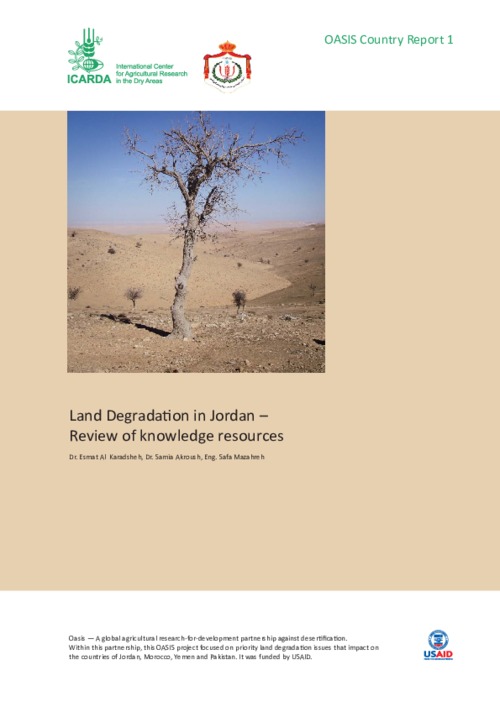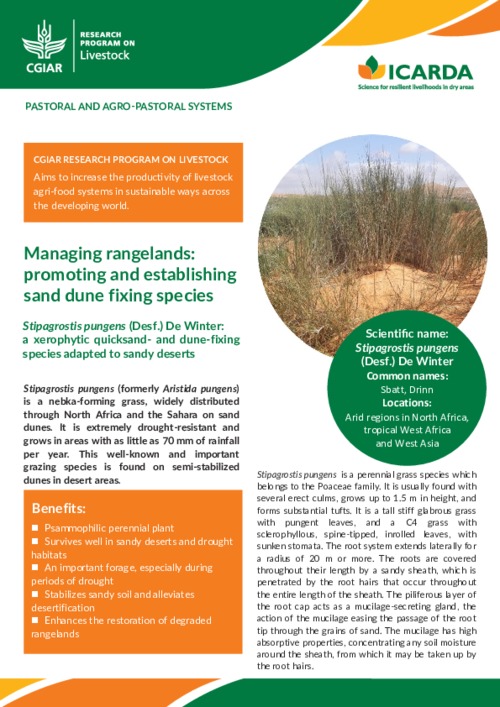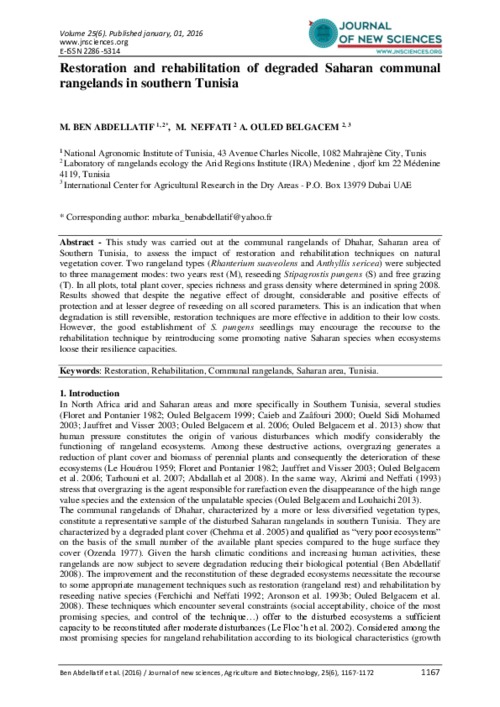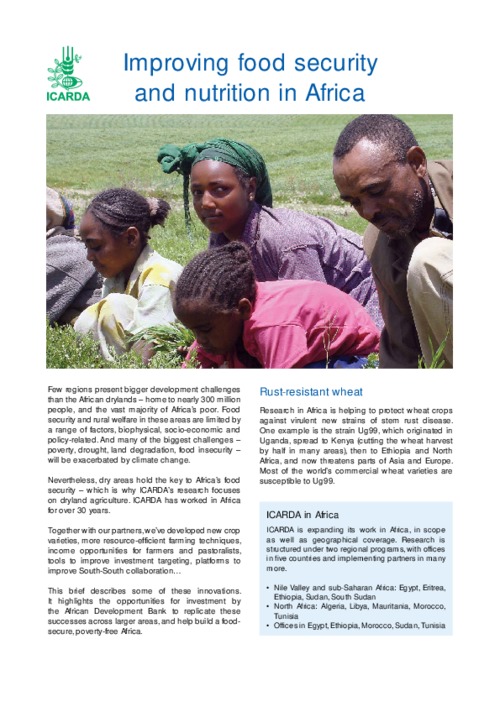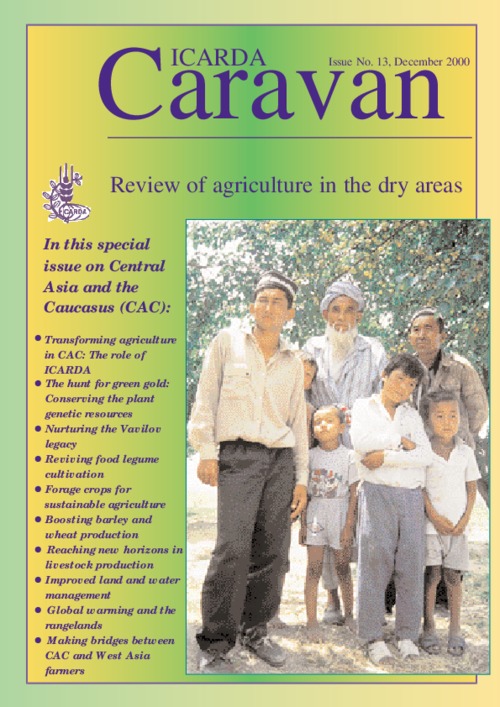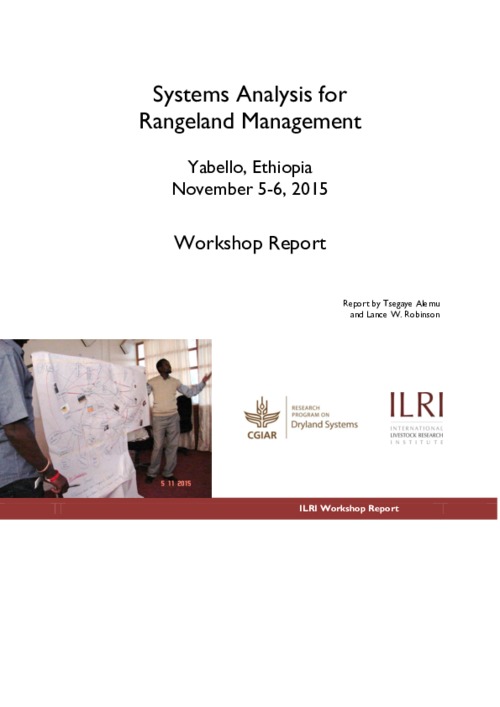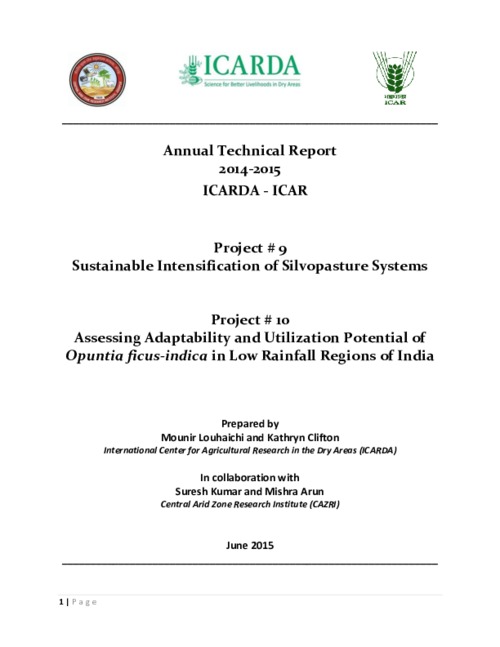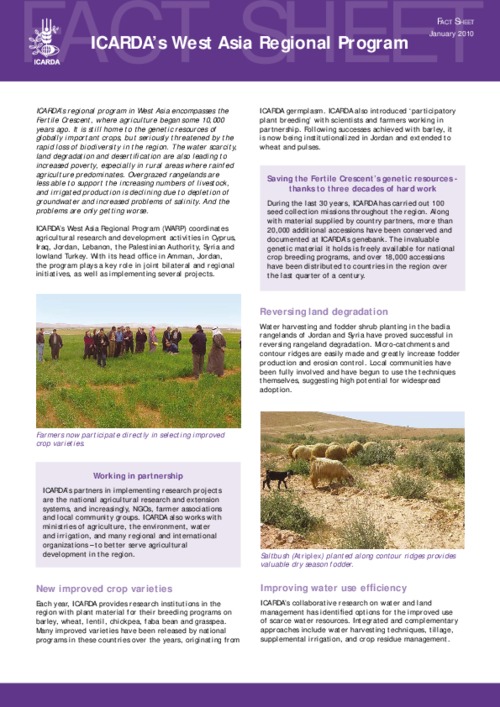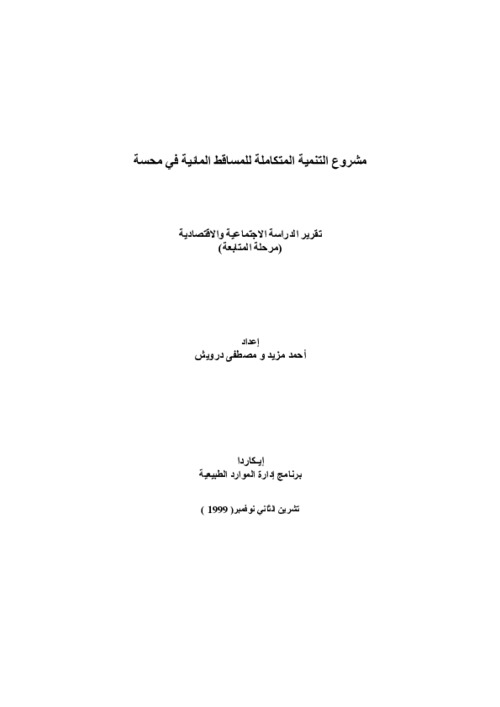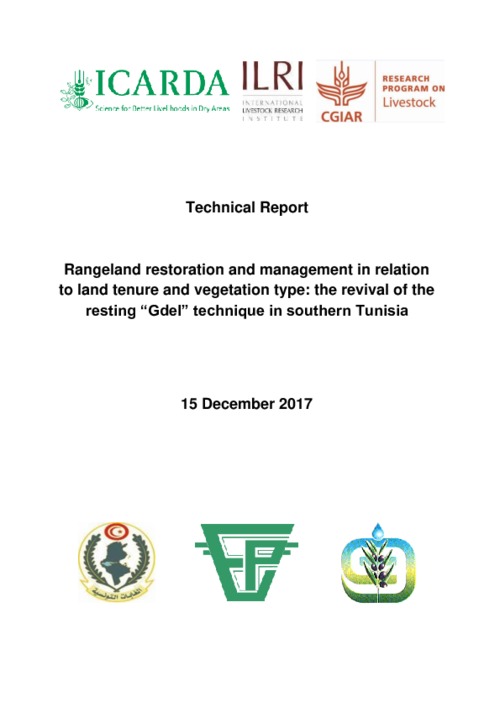Land Degradation in Jordan – Review of knowledge resources
This publication is a baseline assessment reviewing the current knowledge of land degradation in the rangelands of Jordan - known as Badia - with a special focus on its causes. It includes a review of current legislation and on-going initiatives to combat land degradation, along with an analysis of the main constraints limiting their effectiveness.

